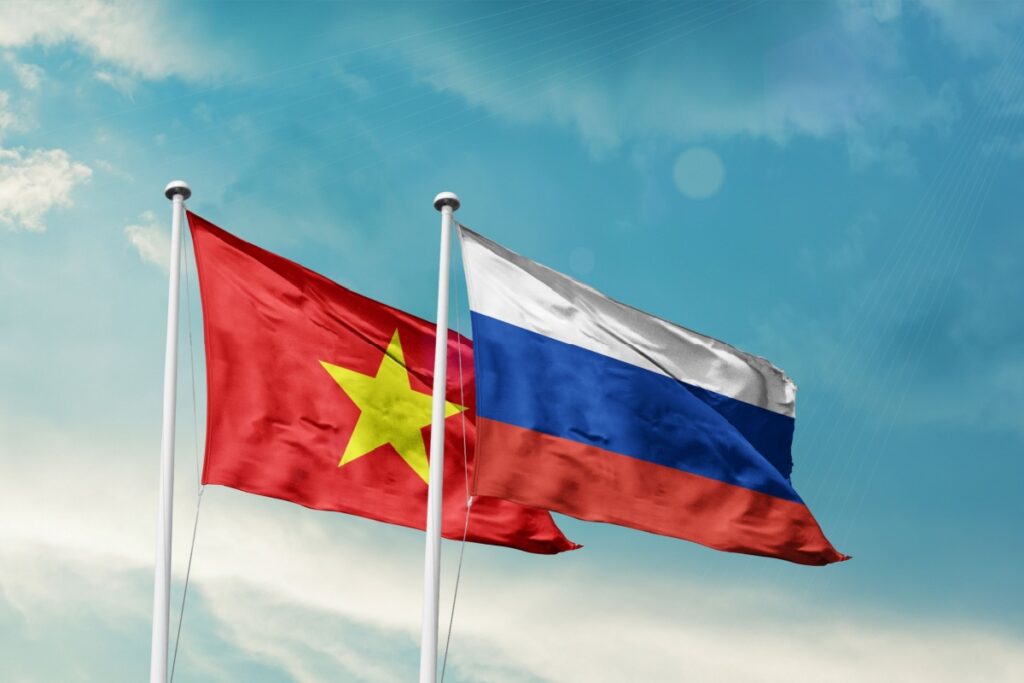Vietnam and Russia have established a covert financial arrangement to facilitate defense transactions while evading U.S. and Western sanctions. This mechanism leverages profits from their joint oil venture, Rusvietpetro, to settle military debts without engaging in international financial systems like SWIFT. The arrangement underscores Vietnam’s strategic balancing act between its defense ties with Russia and its growing relations with the United States.
Covert Financial Mechanism
Internal Vietnamese documents obtained by the Associated Press reveal that Vietnam has purchased Russian military equipment—including fighter jets, tanks, and ships—on credit. These purchases are made without violating international sanctions by using profits from the Rusvietpetro joint venture in Siberia. The profits earned from the venture are transferred to Moscow in lieu of direct military payments. The process involves Vietnamese profits being transferred to Russia’s state-owned oil company, Zarubezhneft, in exchange for the military equipment, essentially allowing the Vietnamese government to bypass the traditional international banking system and avoid triggering U.S. sanctions.
Zarubezhneft then facilitates a parallel transaction by transferring the equivalent amount back to Petrovietnam, Vietnam’s state oil company, through their local joint venture. This complex system allows both countries to carry out the necessary transactions while maintaining plausible deniability regarding sanction violations. The flow of funds occurs smoothly without interference from international financial institutions like SWIFT, which is typically used to monitor and regulate cross-border financial transfers.
This financial workaround has proven crucial in maintaining Russia and Vietnam’s military relationship amid U.S. sanctions. The arrangement avoids both countries having to make direct financial transactions, thus protecting them from penalties imposed by Washington under its stringent foreign policy measures.
Strategic Implications
The continued collaboration between Russia and Vietnam in defense matters highlights a broader geopolitical reality in Southeast Asia. Russia’s role as a major supplier of arms to Vietnam is well-documented, particularly as Vietnam faces ongoing territorial disputes with China over the South China Sea. Since the end of the Vietnam War, Russia has played an integral role in supplying Vietnam with military technology, including advanced surface-to-air missiles and fighter jets.
However, this has placed Vietnam in a difficult position, as it seeks to balance its defense needs with its growing economic and strategic partnership with the United States. Vietnam’s decision to procure military equipment from Russia on credit is a delicate maneuver, intended to ensure that its defense capabilities are maintained without alienating its primary trading partner—the United States. Since the lifting of the U.S. arms embargo in 2016, the U.S. has increasingly become a key partner for Vietnam, especially in terms of trade and military cooperation. Despite this, the military credit agreements with Russia remain a significant element of Vietnam’s strategy, particularly as it seeks to maintain a deterrent against Chinese aggression.
Vietnam’s continued reliance on Russian military support, as indicated by its $8 billion credit agreement for weapons and technology in 2023, underscores the complexities of international relations in the region. The United States, while providing significant trade opportunities and military cooperation, has been cautious about Vietnam’s defense ties with Russia. This delicate balance between the U.S. and Russia has prompted Vietnam to explore alternative financial mechanisms to maintain military readiness without violating international sanctions.
Regional Dynamics
Vietnam’s military position in Southeast Asia is increasingly important due to its proximity to China, which has been expanding its territorial claims in the South China Sea. With a robust and modern military, Vietnam plays a key role in countering Chinese influence in the region. However, the region is fraught with tension, especially as China builds artificial islands in the South China Sea and extends its military presence.
Despite the strong economic ties between Vietnam and China—Vietnam’s largest trading partner—there are significant territorial disputes that have strained relations. Vietnam’s strategic partnership with the United States has been a key factor in counterbalancing Chinese ambitions. The U.S. sees Vietnam as an important ally in ensuring the free flow of commerce through the South China Sea, which is vital for international trade. As a result, Vietnam has received increasing amounts of military support from the United States, particularly in areas such as maritime security and advanced defense technologies.
However, Vietnam’s dependence on Russian military supplies complicates its foreign policy. Despite the United States’ increasing defense support, Vietnam has historically leaned on Russia for critical defense technology. The $2 billion credit deal in 2011 and the more recent $8 billion deal illustrate Vietnam’s ongoing reliance on Russian arms, particularly in terms of fighter jets and submarines. This dual approach, engaging both Russia for arms supplies and the U.S. for strategic and economic cooperation, reflects Vietnam’s desire to maintain a strong defense posture while also cultivating its relationship with Washington.
Document Verification and Future Outlook
Experts have verified the authenticity of the leaked Vietnamese documents through metadata analysis and other means. These documents confirm the existence of a covert financial arrangement designed to bypass international sanctions. The plans outlined in these documents are not theoretical; they have already been realized in part. For example, in June 2024, during Russian President Vladimir Putin’s visit to Hanoi, Zarubezhneft was granted a license to develop a gas field off the coast of Vietnam, further cementing the energy ties between the two countries.
Moreover, in May 2025, Vietnamese officials visited Moscow to sign a new “Strategic Partnership Plan,” covering defense and economic cooperation for the 2026–2030 period. These agreements highlight the ongoing, multidimensional relationship between the two nations, with an emphasis on energy, defense, and geopolitical alignment against China.
Vietnam’s foreign policy, shaped by both its historical relationship with Russia and its current strategic partnership with the United States, will likely continue to evolve in response to regional dynamics. As international sanctions pressure increases, Vietnam will have to navigate its complex relationships with both Moscow and Washington. The covert financial arrangement with Russia is just one facet of Vietnam’s broader strategy to ensure its national security while remaining economically and diplomatically engaged with the West.


